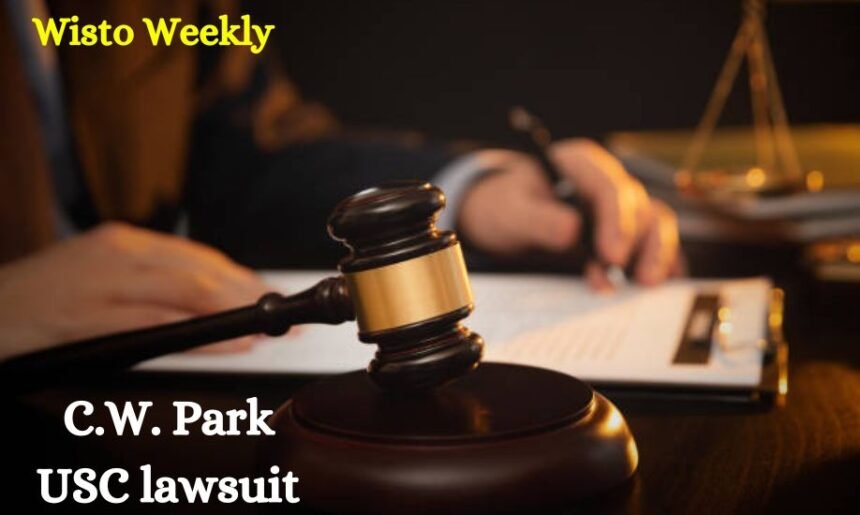The C.W. Park USC lawsuit has garnered significant attention, both within the academic community and in the broader legal landscape. This article explores the origins, developments, and potential ramifications of this complex case.
What is the C.W. Park USC Lawsuit?
The C.W. Park USC lawsuit centers around serious allegations against Dr. Choong Whan Park, a former professor at the University of Southern California’s Marshall School of Business. The lawsuit involves claims of harassment and assault, primarily targeting female students of Korean descent. It also accuses the university of failing to adequately address these complaints, thereby fostering an unsafe educational environment.
History of the C.W. Park USC Lawsuit
The allegations first surfaced when a former student assistant accused Dr. Park of multiple instances of sexual misconduct over a three-year period. This lawsuit has since expanded to include other claims of misconduct by Dr. Park and alleges that USC was complicit in ignoring or mishandling the complaints due to systemic flaws in their reporting and response systems.
Key Legal Aspects of the C.W. Park USC Lawsuit:
- Intellectual Property and Breach of Contract: Dr. Park has also brought forward claims against USC concerning intellectual property theft and breach of contract, arguing that the university misused his research findings without proper attribution.
- Title IX Violations: The lawsuit alleges violations of Title IX, which mandates that educational institutions receiving federal financial assistance operate in a non-discriminatory manner. The claims suggest that USC failed to provide a safe learning environment, particularly for female students.
- Discrimination and Retaliation: Alongside the sexual misconduct allegations, there are accusations of discrimination and retaliation against those who attempted to report the misconduct. This includes allegations from other faculty members who claim they faced professional setbacks for supporting students or criticizing the university’s handling of such incidents.
Broader Implications and Benefits of the C.W. Park USC Lawsuit
The C.W. Park USC lawsuit is not just about the individuals directly involved; its implications ripple out to affect the policies and practices of higher education institutions across the nation:
- Policy Reform: This case highlights the need for universities to reassess their sexual harassment policies and enforcement mechanisms. It stresses the importance of creating transparent systems that support victims and encourage them to come forward without fear of retaliation.
- Awareness and Training: Increased awareness and mandatory training can emerge from this lawsuit, aimed at educating students and staff about the rights and resources available to combat sexual harassment and discrimination.
- Academic Safety: A successful outcome for the plaintiffs could lead to improved safety protocols in academic institutions, ensuring a safer environment for all students.
- Legal Precedent: The lawsuit might set a significant legal precedent for how similar cases are handled in the future, particularly concerning the responsibilities of institutions to protect their students and staff from sexual misconduct and discrimination.
Strengthening University Accountability
The C.W. Park USC lawsuit underscores the critical need for universities to be held accountable for their actions and policies. The allegations and the subsequent legal battle highlight systemic issues that can arise when institutions fail to properly address serious accusations. This case could prompt universities to implement more stringent oversight mechanisms and accountability measures, ensuring that all allegations of misconduct are treated with the seriousness they deserve. These changes could help to restore public confidence in academic institutions as safe and respectful environments.
Promoting a Culture of Respect and Dignity
The reverberations of the C.W. Park USC lawsuit serve as a catalyst for promoting a culture of respect and dignity within academic settings. By publicly addressing such serious allegations and actively working to reform internal policies, universities can demonstrate their commitment to fostering an environment where all members—students, faculty, and staff alike—are treated with respect. This cultural shift is essential not only for preventing similar incidents but also for building a community that values and protects every individual’s rights.
FAQs About the C.W. Park USC Lawsuit
What are the main allegations in the C.W. Park USC lawsuit?
The main allegations involve sexual harassment and assault primarily against female students of Korean descent by Dr. C.W. Park. It also includes claims against USC for mishandling these complaints, thereby violating Title IX regulations.
Who is Dr. C.W. Park?
Dr. Choong Whan Park is a former tenured professor at the USC Marshall School of Business, who faced multiple allegations of sexual misconduct that led to his retirement and the subsequent lawsuit.
How has USC responded to the lawsuit?
USC has denied the allegations, stating that it has taken appropriate actions to investigate and address the complaints. The university emphasizes its commitment to creating a safe and respectful environment.
What changes might result from the C.W. Park USC lawsuit?
Potential changes include the reform of policies regarding sexual harassment and discrimination, better support and protection for whistleblowers, and enhanced training for students and staff on these issues.
Could this lawsuit affect other universities?
Yes, this lawsuit could influence other universities to reevaluate and strengthen their policies and procedures related to handling allegations of sexual misconduct and discrimination to avoid similar legal challenges.
The C.W. Park USC lawsuit serves as a critical case study in the ongoing effort to ensure safety and equity in educational institutions. Its outcomes could lead to substantial changes in how universities nationwide address and prevent sexual misconduct and discrimination.



